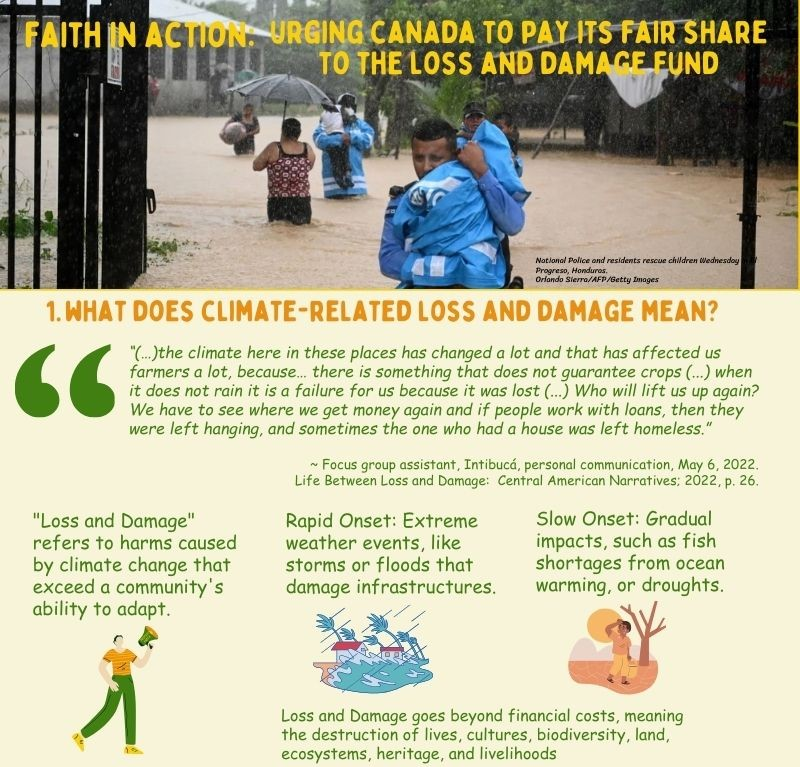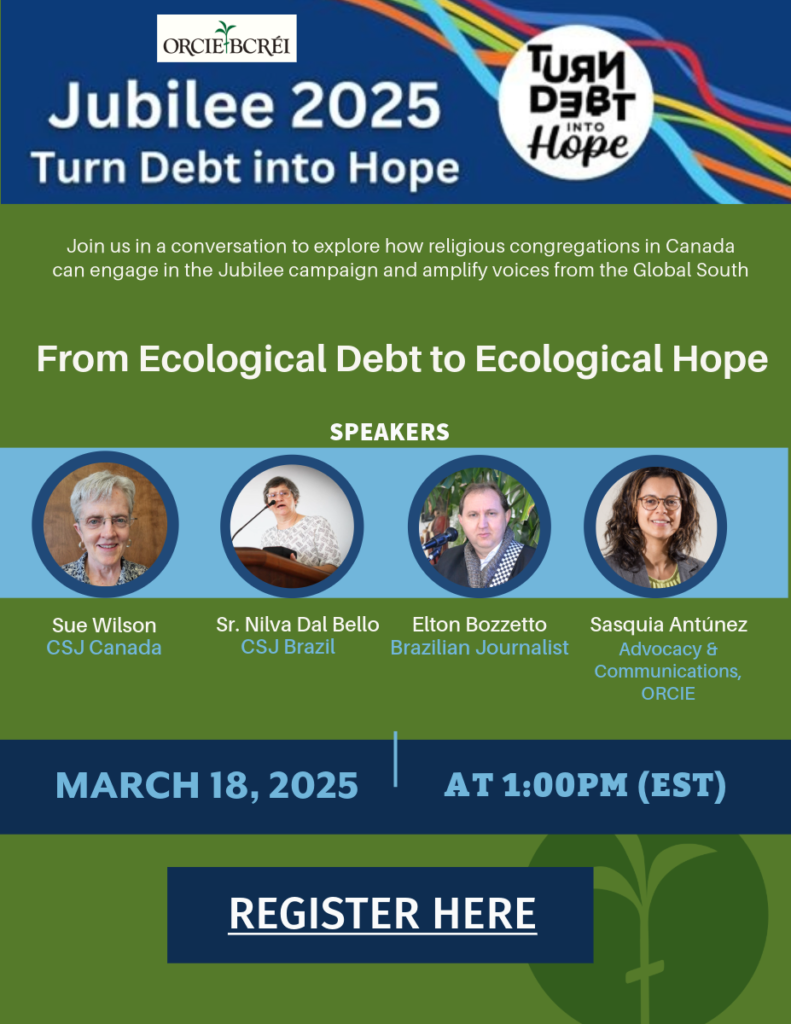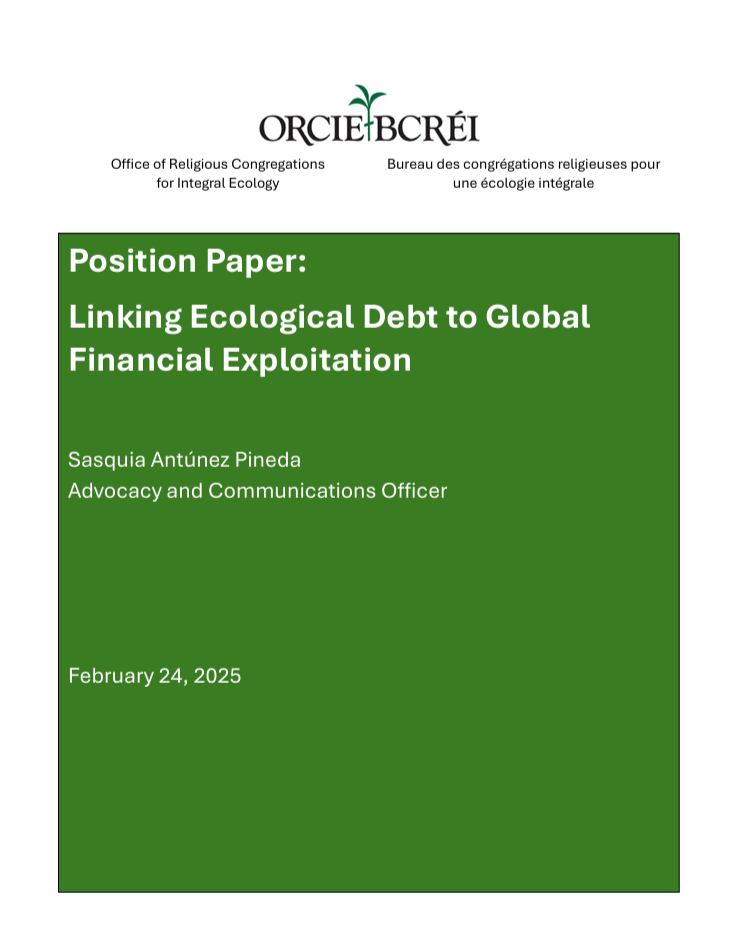Linking Ecological Debt to Global Financial Exploitation
For Jubilee 2025 ORCIE explores the concept of ecological debt and its deep connections to global financial exploitation in a special deep-dive position paper, exploring the deep-rooted connections between environmental destruction, colonial legacies, and the ongoing economic disparities between the Global North and South.
Inspired by Pope Francis’s urgent appeal for debt forgiveness and systemic reform, the paper advocates for a reform of the current global economic system to advance the Sustainable Development Goals (SDG’s).
See also the executive summary:Linking Ecological Debt to Global Financial Exploitation Summary.
Loss and Damage Infographic
Climate-related loss and damage is a serious and growing issue, and it’s hitting low-income countries the hardest — even though they contribute the least to global pollution. As climate disasters happen more often and become more severe, these communities suffer the most, losing their homes, jobs, and even their cultural heritage and natural environments. Wealthy countries like Canada have played a big historical role in causing these issues, but they haven’t done enough to help fix them. The Loss and Damage Fund, set up at COP27, was a good start — but the money committed so far isn’t nearly enough to meet the needs of affected nations. This infographic shows why richer countries need to take more responsibility and how Canada can do its part to support those facing the worst of the climate crisis. Check out the full infographic here.

Laudate Deum
This short film is based on Pope Francis’ 2023 document Laudate Deum, using dramatic images and footage of the current climate crisis interspersed with excerpts from the document and expert observations offered by Caroline Brouillette, ED of Climate Action Network Canada, Dr. Hilda Koster, Prof of Theology and Ecology, U of Toronto and ORCIE Board Member, Dr. Darlene O’Leary, Co-ordinator of the Martha Justice Ministry, Antigonish, NS. It is also an effective primer on the United Nations Framework Convention on Climate Change and analyzes the effectiveness of the annual UN meetings concerning the climate crisis.
Webinar Resources: From Ecological Debt to Ecological Hope
On March 18th, ORCIE hosted an engaging webinar titled From Ecological Debt to Ecological Hope, part of our ongoing engagement in the Jubilee 2025 campaign, “Turn Debt into Hope.” With 136 registered participants, the event brought together religious leaders from Canada and Brazil to address the urgent need for ecological and financial justice in the Global South. The webinar’s primary intention was to highlight the burden of unjust, unpayable debts faced by many countries and to discuss how religious communities can amplify their voices within the Jubilee campaign, especially that of religious in the Global South. The session featured guest speakers from diverse backgrounds: Elton Bozzetto (Brazilian journalist), Sr. Nilva Dal Bello (CSJ Brazil), Sue Wilson (CSJ Canada), and Sasquia Antúnez Pineda (ORCIE’s Advocacy and Communications Officer).
The discussions were enriched by interpretation in French, English, and Portuguese.
Missed the Webinar? Find the links to all resources here: Webinar Resources: From Ecological Debt to Ecological Hope

Webinar Recording – From Ecological Debt to Ecological Hope
The full recording of our Spring 2025 ORCIE webinar is now available. This powerful conversation explores the links between ecological and financial debt, with voices from the Global South and faith communities calling for justice, solidarity, and systemic change.
A version with English and French subtitles will be available soon.

